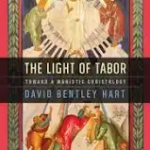Like her other books, Diane Ackerman’s The Human Age is like a long, informative conversation with a witty woman who has been everywhere, done everything, and talked to everyone who has something interesting to say. Given the environmental concerns that inspired this book, The Human Age is somewhat more polemical than Ackerman’s other work. But she is persuaded by facts, so the polemic is muted and her positions on technology are balanced. She can’t get over the giddy wonder at the things... Read more















